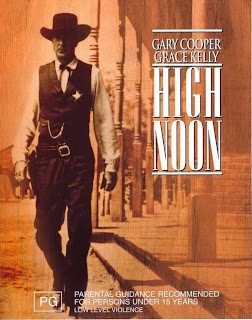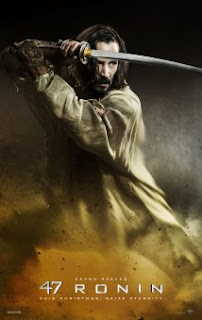Science fiction movies are often interesting, yet offer very unrealistic visions of the future. Many times the future is some sterile, polished, Jetsons-like reality where everyone has moon boots and jet packs. Other times the future is a tired and cliche post-apocalyptic, dystopian, Orwellian nightmare. Very few project an image of the future that is advanced, yet believable. A place where culture has evolved and technology has made great improvements, and yet people remain people and under the veneer of progress there is still poverty, filth, and decay.
Blade Runner is a movie that hits all the latter notes just right.
Two things impact the viewer of
Blade Runner almost immediately upon beginning to watch: the scope of the world it creates, and the majestic style in which that world is filmed.
Blade Runner's Los Angeles of the future is a crowded, dirty, dark and industrial cesspool of a place to live. It is constantly raining and nearly always dark, even somehow dark during the infrequent moments of the film that occur during daylight. The sprawl of the city is huge, with a sea of fire in what can only be an industrial section, and with buildings that tower to great heights above the common refuse of the street. The clothing styles are absurd, the amusements depraved, the conditions crowded and filthy, and a general feeling of rot settles over everything.

And yet in the midst of the sprawl of urban decay and ugly streets there is also the presence of beauty. In one of the earliest images from
Blade Runner we get a close up shot of a man's eye, and in his eye we see the reflection of thousands of lights. It is the lights of Los Angeles at night looking like so many stars. It's a remarkably beautiful shot. This single shot also highlights the movie making prowess of director Ridley Scott as well as the art and cinematography departments. Despite how close the camera appears to the eye, there is no reflection of the camera there. It is gloriously great work.
 Blade Runner
Blade Runner is just filled with iconic images like that. There's the wonderfully fabulous looking flying cars, made to fly with special effects that hold up flawlessly today. There are the delightfully odd looking toys in Sebastian's house. There's the live bug in Deckard's drink, the image of the dove flying away in the rain, and the airship broadcasting the amazing benefits of living off-world. And, of course, there are the advertisements that take up the entire side of a skyscraper, and the iconic beam of light umbrellas.
Blade Runner is quite simply a visual treat, doing everything flawlessly.
You might expect that such a visual movie may simply be about action and little substance. After all, most science fiction films today simply have advanced technology for the sole purpose of having advanced explosions and faster speeds. But not
Blade Runner.
Blade Runner is a science fiction story in the true, classic sense of the term. It uses its fantastic and implausible setting to make a serious statement about life. The fictional story in an imaginary world raises deep and important questions about the real world and actual human existence.
Blade Runner is great entertainment, but it also wants to make us think.
Deckard (the best role Harrison Ford has ever played) is a Blade Runner, a special kind of policeman. He tracks down, identifies, and kills (it's called "retiring") replicants. A replicant is an artificial person, what we might call an android, or even robot. These are not metalic beings, but creatures of flesh and blood, genetically engineered for strength, beauty, or some other utilitarian purpose.
 |
"I've seen things you people wouldn't believe...
...all those moments will be lost in time, like tears in rain.
Time to die." |
Replicants are not allowed on Earth, they are to be hunted down and destroyed -which is where Deckard comes in. The story itself is great, but the themes that it brings up are deep and profound. If you make an artificial human who thinks and emotes and experiences life as you do, are they "real" or "artificial?" Would a creation of your be your property, or would it have some right to its own life? What does it meant to be real, to live, to have a soul? Does a creator have the responsibility to act in the best interests of his/her creation, or is he/she permitted to create purely from pragmatic self-interest? Of what use is a life, and all that life experiences, in view of the eventual and unavoidable reality of death? What is right and wrong? What, after all, is the point of existence?
"It's a shame she won't live! But then again, who does?"
Bringing all the high-concept philosophy together is the writing (which is masterful), the direction (flawless), the art (already spoken highly about that), the acting (marvelous, especially Rutgar Hauer), and the action (exciting). I can think of nothing in this movie that is not done well. Extraordinary.
Entertainment: 8/10
Artistic Value: 10/10
Technical Merit: 10/10
Overall: 10/10
P.S. This review applies to the Final Cut of the film. The theatrical and "directors" cuts are decidedly inferior, in my humble but correct opinion.

By the way, the movie is based on the Philip K. Dick novel
Do Androids Dream of Electric Sheep? Now, we never get to see any electric sheep, but we do often wonder about the unicorn. If replicants can have false memories, could they then logically dream of false creatures? And if Gaff made Deckard an origami unicorn, could he be telling Deckard that he knows what he dreams -perhaps even knows his memories? Is the blade runner actually a replicant? Ultimately, what assurance do any of us have that we are "real?"













































